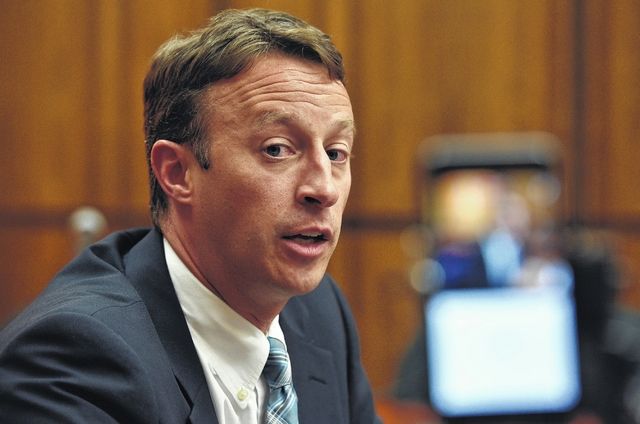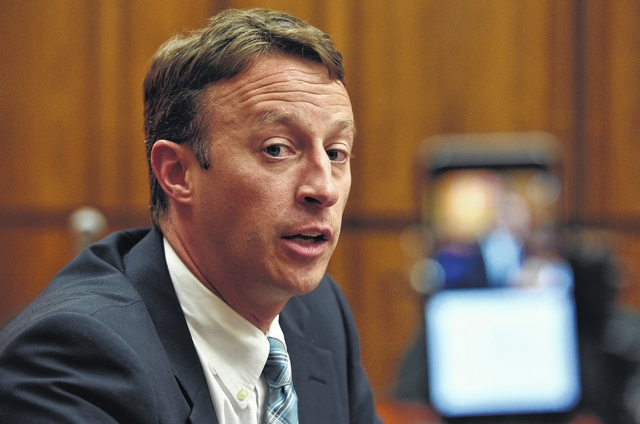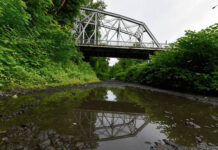Faced with rising expenses, Luzerne County Manager C. David Pedri said his first proposed budget will recommend a new $5 vehicle registration fee and continued reliance on $5 million that had been earmarked for deficit reduction in 2017.
Pedri, appointed manager in May after serving as interim head since January, declined to get into specifics about a possible proposed tax hike.
“I’m still working on the numbers and will present the proposal to council tomorrow night,” he said Monday.
The owner of a property assessed at $100,000 pays $575 in county taxes under the current tax rate.
The introduction of an ordinance imposing the controversial vehicle registration fee is on Tuesday’s council voting agenda.
County council members have periodically discussed but failed to act on the fee since state legislators authorized the option in 2013 to help counties fund road and bridge maintenance expenses. Most recently, a council majority tabled an ordinance imposing the fee in May.
Thirteen of the state’s 67 counties have enacted the fee to date, according to the County Commissioners Association of Pennsylvania. An estimated 280,190 vehicles in the county would pay the fee, the association says, generating more than $1 million.
Echoing arguments of past fee supporters, Pedri said the fee would “spread out the burden” of funding county government, which primarily falls on property owners. Critics have characterized the fee as a “double tax” on property owners who also own vehicles.
About $1.5 million of this year’s $130 million county general fund operating budget is spent on the county’s 127 miles of roads and more than 300 bridges — most inherited during the Great Depression when municipalities didn’t have the financial means to care for the infrastructure.
The $5 million slated for deficit reduction stems from a county-funded homestead tax break on primary residences a council majority temporarily halted in 2015. Participants had saved $45 to $57 on their county real estate taxes annually through the break that started in 2009.
The council had directed the break would be restored in 2018 and funds from halting the break must be used for deficit reduction in 2017. The county carries a $9.4 million deficit.
An ordinance on Tuesday’s agenda would permanently end the homestead break and allow the funds to be used for operating expenses in 2017.
Pedri said only two other counties provided the break at the time the county stopped it.
“We are over $350 million in debt from extensive past borrowing and are not in a position to give an abatement now,” he said.
Additional revenue is needed to cover rising health care and pension costs and union-negotiated raises, Pedri said, promising specifics in his upcoming presentation. Savings from debt restructuring last year also yielded $2.8 million to prepay 2016 Children and Youth expenses, but a comparable windfall likely won’t be available for 2017, he said.
Pedri said he’s open to alternatives that won’t compromise mandated services, from plowing county-owned roads to operating a prison, 911 center and judicial system. The county has approximately 1,400 employees, which he said is “one of the smallest numbers of Luzerne County employees ever.”
“We provide a lot of services on a daily basis, and it costs money. We cut everywhere we could possibly cut,” he said.
The council must adopt a budget by Dec. 15.
“Council can accept, change or amend my proposal. I absolutely see this budget as a work in progress and look forward to working with council to get the best plan for Luzerne County,” Pedri said.





